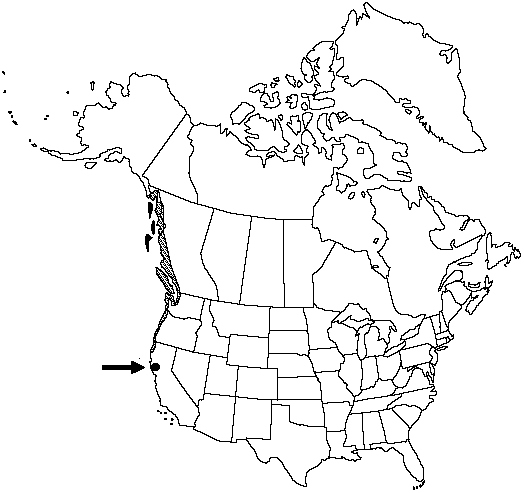Pinus contorta var. contorta
Trees to 10m; trunk to 0.5m diam., straight, leaning landward in protected stands, or contorted and bent when not, or reduced to shrub form by wind shear and salt spray; mature crown irregularly rounded or flat. Bark evidently and irregularly furrowed, cross-checked into small, square or rectangular, orange-brown to purple-brown scaly plates. Branches spreading, often contorted. Leaves 2–7cm × 0.7–0.9(–1.1)mm, dark green, apex acute to broadly acute or blunt. Seed cones maturing and shedding seeds in 2 years, persistent or variously serotinous, strongly asymmetric, strongly recurved, often in whorls, proximal outer apophyses strongly domed.
Habitat: Maritime fog forests, bogs, and dry foothills
Elevation: 0–600m
Distribution

B.C., Alaska, Calif., Oreg., Wash.
Discussion
Pinus contorta var. contorta is fire successional. It is mostly a low-quality tree for timber use.
Selected References
None.